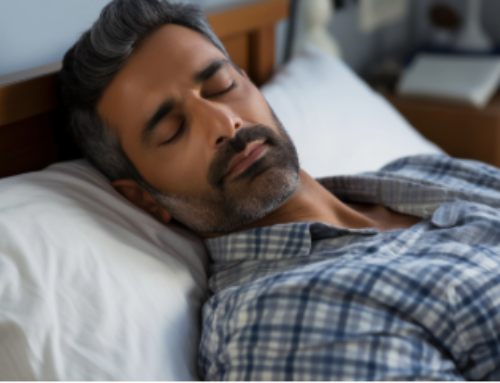Millions of Americans are diagnosed with type 2 diabetes, yet the exact causes of diabetes still puzzle scientists. Now, new research from Brigham and Women’s Hospital (BWH) finds that the amount of melatonin a person secretes during sleep may predict their risk of developing type 2 diabetes.
“This is the first time that an independent association has been established between nocturnal melatonin secretion and type 2 diabetes risk,” said Dr. Ciaran McMullan, a researcher in the Renal Division and Kidney Clinical Research Institute at BWH. “Hopefully this study will prompt future research to examine what influences a person’s melatonin secretion and what is melatonin’s role in altering a person’s glucose metabolism and risk of diabetes.”
Melatonin is a hormone that is produced by the brain and secreted into a person’s bloodstream. As melatonin is mainly produced at night, melatonin’s blood levels peak during the nightime allowing regulation of circadian rhythm.
The study, appearing in the April 3, 2013 issue of JAMA identified 370 women who developed diabetes while taking part in the Nurses’ Health Study and 370 control subjects of the same age and race. When the two groups were compared, researchers found the study participants with low levels of nocturnal melatonin secretion had about twice the risk of developing type 2 diabetes than participants with high levels of nocturnal melatonin secretion.
The study accounted for other well-established risk factors for diabetes, such as body mass index, family history of diabetes and lifestyle factors including diet, exercise, smoking and sleep duration and still found that melatonin secretion remained a significant risk factor.
Diabetes is often treated with medications or insulin. It also can be managed by testing blood glucose levels, exercising, eating well and sleeping well. Sleep experts recommend getting seven to eight hours of sleep each night.
But people with a sleep disorder may have a hard time getting the sleep they need. Having a sleep disorder also can be a risk factor for diabetes. A high percentage of people with diabetes have obstructive sleep apnea (OSA).
The American Academy of Sleep Medicine considers sleep disorders an illness that has reached epidemic proportions. Board certified sleep medicine physicians in an AASM accredited sleep center can provide effective treatment. AASM encourages patients to talk to their doctors about sleep problems or visit a searchable directory of sleep centers.





